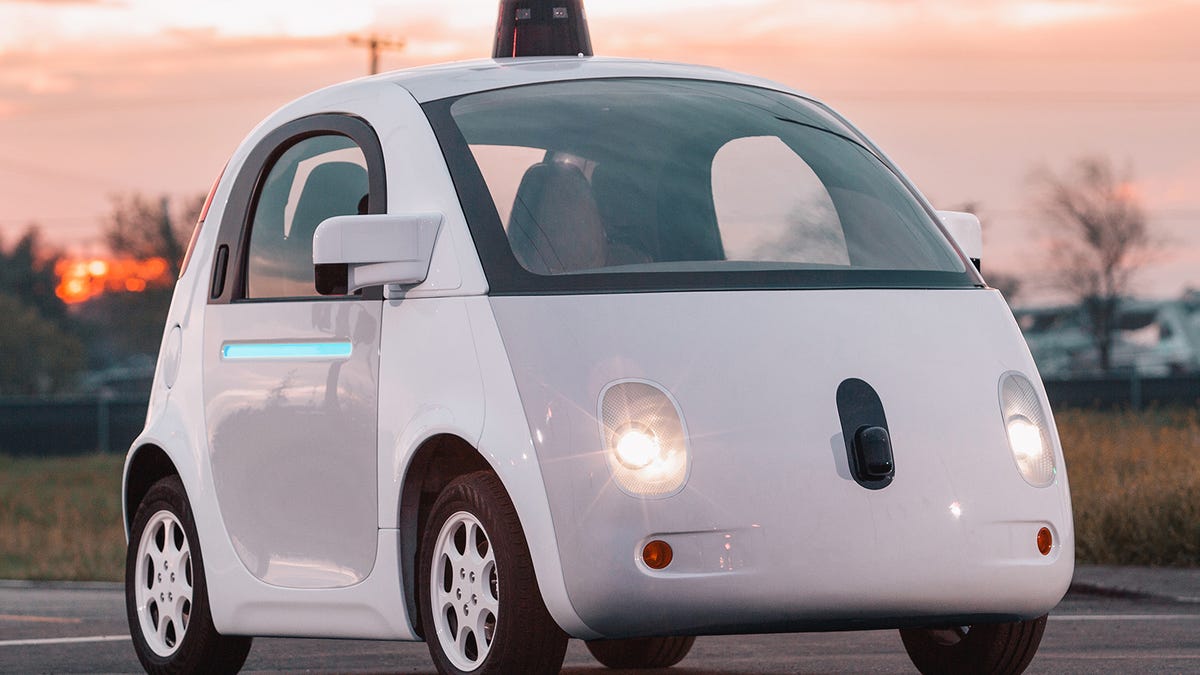Does GM want to build a driverless car with Google's help?
GM product development chief says the automaker would be interested in using both companies' strengths to embrace the future of the automobile, according to Bloomberg.

Google has said it's interested in teaming up with others to make driverless cars. Will GM be one of those companies?
Is GM willing to form a partnership with Google to build a better, and hopefully cheaper, autonomous vehicle? Quite possibly, according to comments the automaker's head of product development made to Bloomberg.
The story, published Thursday, centers largely on Cadillac's semi-autonomous Super Cruise system, due out late next year. Super Cruise uses sensors and cameras to make adjustments to speed and steering without driver input, reducing reliance on humans in traffic and on long stretches of highway.
Discussing both corporations' forays into self-driving cars, GM product development chief Mark Reuss told Bloomberg a partnership between the two could prove very beneficial. He talked about the strengths and weaknesses of both Google and GM when it comes to the future of automobiles, and about maybe even teaming up.
"We make cars, we know how to make cars," Reuss told Bloomberg. "They've got great technical capabilities. We are very interested in how those two might work together." The story noted that Reuss has expressed very different feelings about Google, even a few months ago when he called the tech giant "a very serious competitive threat."
Any potential partnership wouldn't be the first, though. Android Auto smartphone connectivity is now offered on a variety of General Motors vehicles for the 2016 model year.
GM has rolled out adaptive cruise control and other entry-level semi-autonomous technologies in the past, but Super Cruise is its most ambitious so far. Nissan is currently cooking up a similar project (albeit with lane changing), Mercedes has a slightly lower-tech version of Super Cruise called Distronic Plus and Tesla's Autopilot is already being used on highways across the country.
Google has invested heavily in autonomous technology, and GM's been building cars since the turn of the 20th century. As the Bloomberg story noted, GM lacks the profit margins and available cash to spend at the tech giant's levels. Using each company's strengths could keep costs low and help move cars with autonomous tech into the mainstream sooner. For now, such vehicles, like the Tesla Model S, remain a plaything of the well-heeled.
There are differences in each company's vision, however. In the story, Reuss rebuffed the idea of transportation becoming completely centralized. He envisions a future where GM both sells cars for personal use and offers a taxi- or ride-sharing-like solution for folks who only occasionally need a set of wheels. Google, on the other hand, prefers to stick with the idea of a future centered on sharing, whether it's sharing rides or vehicle ownership. A partnership between the two could explore the best way to move into the future while building on past experience.
Google declined to comment on any specific partnership, but a spokesman pointed to a Wall Street Journal article from September where the company mentions that it "doesn't plan to manufacture its own cars and wants to partner with others to develop the technology." A spokesman for General Motors said the company had nothing to add at the moment.
Super Cruise will arrive late next year, equipped on Cadillac's all-new CT6 luxury sedan.

